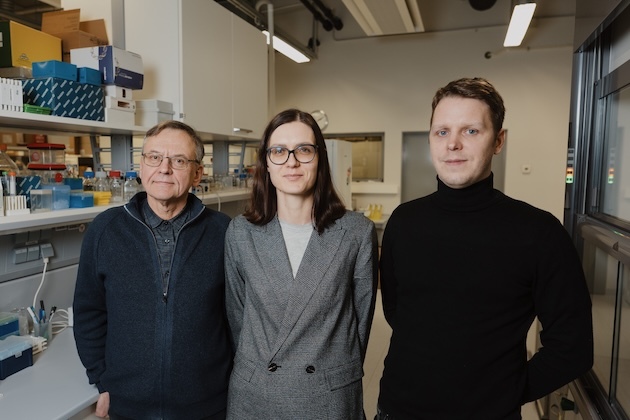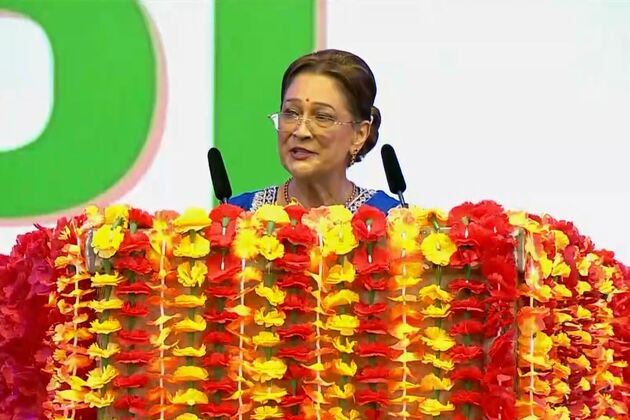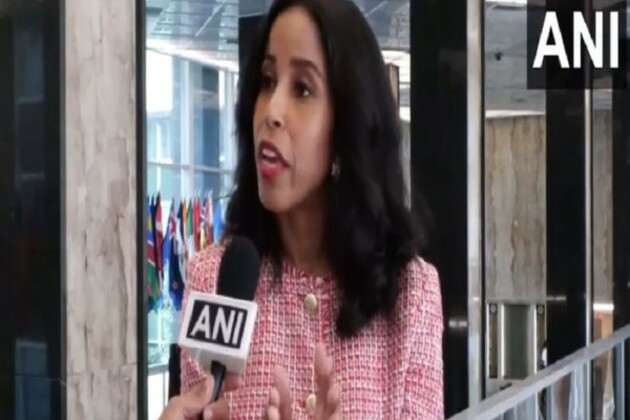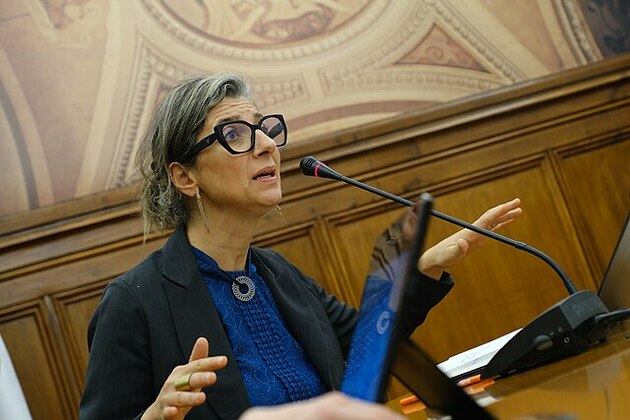Family doctor crisis: 7 options to find the physicians Canada needs
The Conversation
03 Jul 2025, 15:36 GMT+10

Canada faces a massive shortage of physicians. According to recent reports, Canadians require about 23,000 family doctors to meet current and emerging needs.
In the absence of effective solutions, mayors and municipal councils across the country are competing with each other to entice doctors to their communities.
It seems insurmountable, but options do exist and, no doubt, multiple approaches will be needed. What's possible?
My clinical, administrative and educational roles over the years have provided an opportunity to work within and examine the doctor "pipeline" from multiple perspectives. There's a disconnect between that pipeline and the urgent and growing need for doctors, which was a major motivation for my book The Doctors We Need: Imagining a New Path for Physician Recruitment, Training, and Support. Based on all this, at least seven approaches seem possible. All have their pros and cons.
Medical education and training is available in most countries. The number of doctors available varies widely. In fact, some countries appear to have a surplus of medical school graduates who are unable to find employment.
In Canada, doctors are in demand and enjoy an excellent standard of living. Immigration to Canada, if offered, would likely be seen as a very attractive option.
However, medical training globally is highly variable and assessing qualifications relative to Canadian standards is challenging. There would also be no assurance that such doctors would be interested in taking on needed roles or remaining in those practices once settled. Finally, there is an ethical concern - we may be robbing other countries of their needed physicians.
Many foreign-trained doctors have already immigrated to Canada and are working at non-medical jobs, hoping to gain residency status that would allow them to undertake examinations or complete their training.
This approach would have many of the same disadvantages as above, but at least ensures these individuals already have some familiarity with Canadian work environment and a better awareness of the expectations facing physicians.
It's generally acknowledged that there are at least as many Canadians studying medicine outside Canada as within. These are people who were unsuccessful or chose not to engage in our highly competitive admission processes that annually turn away thousands of highly qualified students. They tend to enrol in well-established medical schools in countries such as Australia, Ireland and England.
Although no rigorous analysis or statistics are available, it's increasingly recognized that the majority remain and practise in the countries where they trained, having established relationships and support structures. In fact, many are actively recruited to take up much needed primary care positions in those countries.
Attracting them back to Canada will require a targeted recruitment strategy and expansion of available post-graduate training positions. All that being said, this is potentially a workforce already prepared and willing to address Canadian health-care needs.
All doctors, particularly family physicians, face a burden of paperwork and administrative tasks that drastically reduces their capacity to assess and treat patients. Developing innovative processes and collaborations that allow them to focus their time on direct patient care will expand their impact and reduce the number of physicians required.
Read more: The doctor won't see you now: Why access to care is in critical condition
We're already seeing this strategy play out with nurses and pharmacists providing some primary care that was previously provided only by physicians.
This approach has many merits and can allow physicians to concentrate on key essential roles, as for Option 4, above. The keys will be to ensure that the health-care teams co-ordinate and integrate their work effectively, and that all essential services are provided.
Read more: Access to care: 5 principles for action on primary health-care teams
If we're not able to train sufficient physicians through our own medical school structure, we could partner with foreign, well-functioning medical schools to promote access for Canadians who wish to return to Canada and engage the types of practices that are in such demand.
This would require identifying appropriate schools and developing partnerships ensuring that the admission standards, curriculum and clinical training meet Canadian standards.
The most obvious and intuitively appealing approach would be to simply ramp up the training pipeline within Canada's medical schools. After all, we have excellent schools and certainly no shortage of very willing and capable applicants.
There are currently 18 medical schools in Canada. Plans are in place to expand to 20 schools over the next few years, but this will not be effective unless we change the current processes of training.
The supply of family doctors provided by our current admission and training processes falls far short of our needs. Recent studies also demonstrate that graduates from our current training programs are increasingly turning away from the comprehensive and community-based practices so much in need.
Consequently, even a dramatic expansion within the current training paradigm will fall far short of addressing our needs. To be effective, expansion must occur in conjunction with new approaches to admissions and training.
The new program developed by Queen's at Lakeridge in Oshawa, which is dedicated to admitting and training family doctors, is an example of such innovative programming.
The major drawback of this approach, of course, is that it will take time to even begin to address the shortfall. However, it addresses the fundamental problem most directly and establishes a framework for ongoing sustainability.
While there is no single perfect solution, there are a number of approaches, all of which have potential to relieve Canada's medical workforce crisis. It's time to explore and pursue them all. It's time to develop and empower a multi-disciplinary, pan-Canadian panel to decide which mix of the options will build the reliable, sustainable physician workforce that Canada needs and deserves.
 Share
Share
 Tweet
Tweet
 Share
Share
 Flip
Flip
 Email
Email
Watch latest videos
Subscribe and Follow
Get a daily dose of Mexico Star news through our daily email, its complimentary and keeps you fully up to date with world and business news as well.
News RELEASES
Publish news of your business, community or sports group, personnel appointments, major event and more by submitting a news release to Mexico Star.
More InformationLifestyle
SectionNew French law targets smoking near schools, public spaces
PARIS, France: France is taking stronger steps to reduce smoking. A new health rule announced on Saturday will soon ban smoking in...
Methionine Restriction Could Extend Lifespan, Boost Health
VILNIUS, Lithuania – A growing body of research suggests that selectively restricting a single nutrient in our diet could have profound...
Transformational force who has refined governance of India: Trinidad and Tobago PM praises PM Modi's leadership
Port of Spain [Trinidad and Tobago], July 4 (ANI): Trinidad and Tobago Prime Minister Kamla Persad-Bissessar praised Prime Minister...
Putin suggests fashionable trend in Russia
The president has called for the promotion of large traditional families President Vladimir Putin urged Russians on Thursday to promote...
Green, healthy lifestyle revolution boosts China's consumer market
BEIJING, July 3 (Xinhua) -- With policy support and improving environmental awareness and growing health consciousness of the public,...
Quad Partners focused right to territorial integrity, sovereignty
Washington, DC [USA], July 3 (ANI): The Quad Foreign Ministers' Meeting (QFIM) held in Washington placed strong emphasis on the importance...
International
SectionWhite House meeting between Trump, Netanyahu on July 7
WASHINGTON, D.C.: President Donald Trump will meet Israeli Prime Minister Benjamin Netanyahu at the White House on Monday. President...
Over 60 companies named in UN report on Israel-Gaza conflict
GENEVA, Switzerland: A new United Nations report alleges that dozens of global corporations are profiting from and helping sustain...
UK lawmakers desigate protest group as terrorist organization
LONDON, UK - Lawmakers in the United Kingdom have voted overwhelmingly to proscribe the direct-action group Palestine Action as a terrorist...
Dalai Lama to address Buddhist conference, reveal succession plan
DHARAMSHALA, India: The Dalai Lama is set to address a significant three-day conference of Buddhist leaders this week, coinciding with...
US Supreme Court backs Texas efforts to shield minors online
WASHINGTON, D.C.: In a significant ruling last week, the U.S. Supreme Court upheld a Texas law requiring age verification for users...
Turkey, France battle wildfires amid early Europe heatwave
ISTANBUL/PARIS/BRUSSELS: As searing temperatures blanket much of Europe, wildfires are erupting and evacuation orders are being issued...













